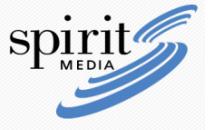Indianapolis, Indiana – An intellectual property lawyer for Joe Hand Promotions, Inc. of Feasterville, Pennsylvania has sued in the Southern District of Indiana alleging that Alice Baldwin and two limited liability companies, all of Evansville, Indiana and doing business as Bucks Tavern, unlawfully intercepted and broadcast the “Rousey v. Carmouche” ![]() championship fight.
championship fight.
Joe Hand Promotions was granted rights to distribute via closed-circuit television and encrypted satellite signal the Ultimate Fighting Championship (“UFC”) “Rousey v. Carmouche” fight (the “Program”), which was telecast nationwide on February 23, 2013.
In the complaint against Baldwin and Bucks Tavern, intellectual property counsel for Joe Hand Promotions has alleged such wrongful acts as interception, reception, publication, divulgence, display, exhibition, and “tortuous” [sic] conversion of the Program.
In addition to naming the separate legal entities which apparently own Bucks Tavern, Joe Hand Promotions has also sued Baldwin as an individual, claiming that she owns those legal entities and that she had the right and ability to supervise the activities of Bucks Tavern. Plaintiff asserts that those activities included the unlawful interception of its UFC Program. It further claims that Bucks Tavern and Baldwin received financial benefit from the unlawful display of the Program.
Baldwin and the Bucks Tavern entities have been accused of violating 47 U.S.C. § 605 and 47 U.S.C. § 553. The complaint also lists a count of conversion. Joe Hand Productions seeks statutory damages of $110,000 for each willful violation of 47 U.S.C. § 605; $60,000 for each willful violation of 47 U.S.C. § 553; compensatory and punitive damages on the claim of conversion; and costs and attorney’s fees. These claims have been made both against Bucks Tavern and as personal liability claims against Baldwin.
Practice Tip #1: Joe Hand Productions has sued three entities: two limited liability companies and an individual who is allegedly a principal in both. While limited liability companies are intended, as the name suggests, to limit the liability of the principals, they are not always successful in doing so. Where a principal is personally involved in certain types of illegal activity, legal mechanisms (such as a limited liability company) that are designed to shield the principal from liability may fail to do so. Unfortunately for Baldwin, it is likely that she, as an individual, will be the primary target of this lawsuit as, according to the complaint, it seems that both of the limited liability companies have been administratively dissolved, making their inclusion as defendants likely irrelevant.
Practice Tip #2: While on the surface this appears to be a copyright case, an allegation of interception under 47 U.S.C. § 605 is a different cause of action from copyright infringement. However, a suit alleging interception does not preclude an additional lawsuit alleging different causes of action. For example, the copyright holder can also sue for copyright infringement, which could increase damages by as much as $150,000.
Practice Tip #3: Joe Hand Promotions is a frequent litigant and has brought several cases in recent years against defendants alleged to have illegally intercepted and/or broadcast UFC fights. Indiana Intellectual Property Law News has previously blogged on the cases below:
• Joe Hand Promotions Sues Fishbowl Pub and its Owners for Unlawful Interception and Broadcast of UFC Fight
• Joe Hand Promotions Sues Ho Bo Jungle Bar Over Unauthorized Interception of the Ultimate Fighting Championship Broadcast
• Joe Hand Promotions Sues Lawrenceburg, Indiana Bar for Showing UFC Fight Without Authorization
• Joe Hand Promotions Sues Beerbelly’s over Interception of Broadcast Signal
• Joe Hand Promotions Sues Longwell and Pitt Stop Pub & Grill for Intercepting UFC Broadcast
 Indiana Intellectual Property Law News
Indiana Intellectual Property Law News






